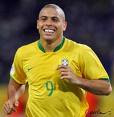Esse é um artigo muito interessante do John Hemingway -- que me pareceu excelente pessoa -- sobre um assunto que já comentei aqui. Eu me manifesto também solidário a Ronaldo e Hemingway, nesse sentido.
Eu pretendo traduzir o artigo, mas resumo a ópera (está virando ópera, mesmo!) : John Hemingway fala, em seu livro Strange Tribe, "Estranha Tribo", ainda sem tradução em português, em como a bipolaridade da qual sofreu seu pai, Gregory, já estava de certo modo na figura de Hemingway. A imagem de macho ideal de Hemingway não correspondia totalmente à realidade, ou melhor dizendo, sua vida privada era infinitamente mais complexa. Gente como Marcelo Mirisola (fã da imagem ideal de Hemingway) está por fora, não leu Strange Stribe e não acompanhou os debates sobre Hemingway que se fazem na academia há alguns anos, sendo que até mesmo as feministas já o vêem de outra maneira.Solidarity for Ronaldo and Hemingway
Living in Milan for as many years as I did, I learned a lot about “Ronaldo” or The Phenomenon as he is commonly referred to in Europe and in Brazil. Soccer is religion in Italy and when one of the two professional teams in the city, F.C. Internazionale Milano (Inter, for short), bought the Brazilian player in the summer of 1997 from F.C Barcelona the media barrage that covered the trade, and thereafter everything about Ronaldo’s life on and off the field, was intense.Yet, as famous as Ronaldo was, and continues to be, I never thought I’d see the day when he would be compared to my grandfather. Then in May a friend suggested that I have a look at a column on the Folha de Sao Paulo. The article, “Solidarity for Ronaldo and Hemingway”, was written by Contardo Calligaris, an Italian psychoanalyst and novelist. Calligaris (who lives in Brazil) said that he was surprised to see a message spray-painted at the entrance to a tunnel near a favela in Rio, Ronaldo’s hometown. Some of the soccer player’s fans had written that they “believed in his innocence” and that he would always remain their “phenomenon.” At the time, Ronaldo was at the center of a scandal involving three transvestite prostitutes who had spent a night with him in a hotel. He claimed that he had been tricked and that he had no idea that they were men. They retorted that he was just trying to get out of paying them.
Calligaris asked “but what kind of innocence are we talking about here?” Ronaldo hadn’t committed any crime and his status as a “phenomenon”, strictly speaking, was related to his performance on the playing field and not with anything he might have done in one of the city’s lesser-known hotels. Calligaris reasoned that for his fans Ronaldo wasn’t just a soccer player but also a “macho ideal” and that as such it was necessary for them to continue believing in his “innocence.”
He then said that he’d read my memoir, Strange Tribe, and pointed out to his readers that Ernest Hemingway, another macho ideal, was perhaps not entirely the man that everyone believed him to be and that he may have struggled as much as Ronaldo has recently in dealing with the contradictions between his public image and an infinitely more complex private reality.
Of course, I hardly needed to be convinced. It was my book that he was talking about, but more than that I had seen what my father had gone through trying to live up to the macho image that Ernest had helped to create. Gregory had done all the things that people generally associate with being a Hemingway; hunting, fishing, drinking and womanizing, and there were times when he had even surpassed his father. At the age of eleven he tied for first place in a national skeet-shooting contest in Cuba, against adults. Gregory was an incredible shot and a chip off the old block, as far as Ernest was concerned. Any kid who could handle a gun that well had to be a real Hemingway. But there was more to being a member of this club of sharpshooters than met the eye. My grandfather and father shared a fascination with androgyny, or as Ernest had the protagonist of his posthumous novel the "Garden of Eden” put it, a search for “a more African sexuality, beyond all tribal law.” They were machos, but with a twist. Men more interested in finding a union of the sexes, than in living on just one side of the gender divide.
It was similarity that united them and which, at the same time, complicated their relationship tremendously. They were mirror images of each other, but being a real man has never been easy.


Nenhum comentário:
Postar um comentário